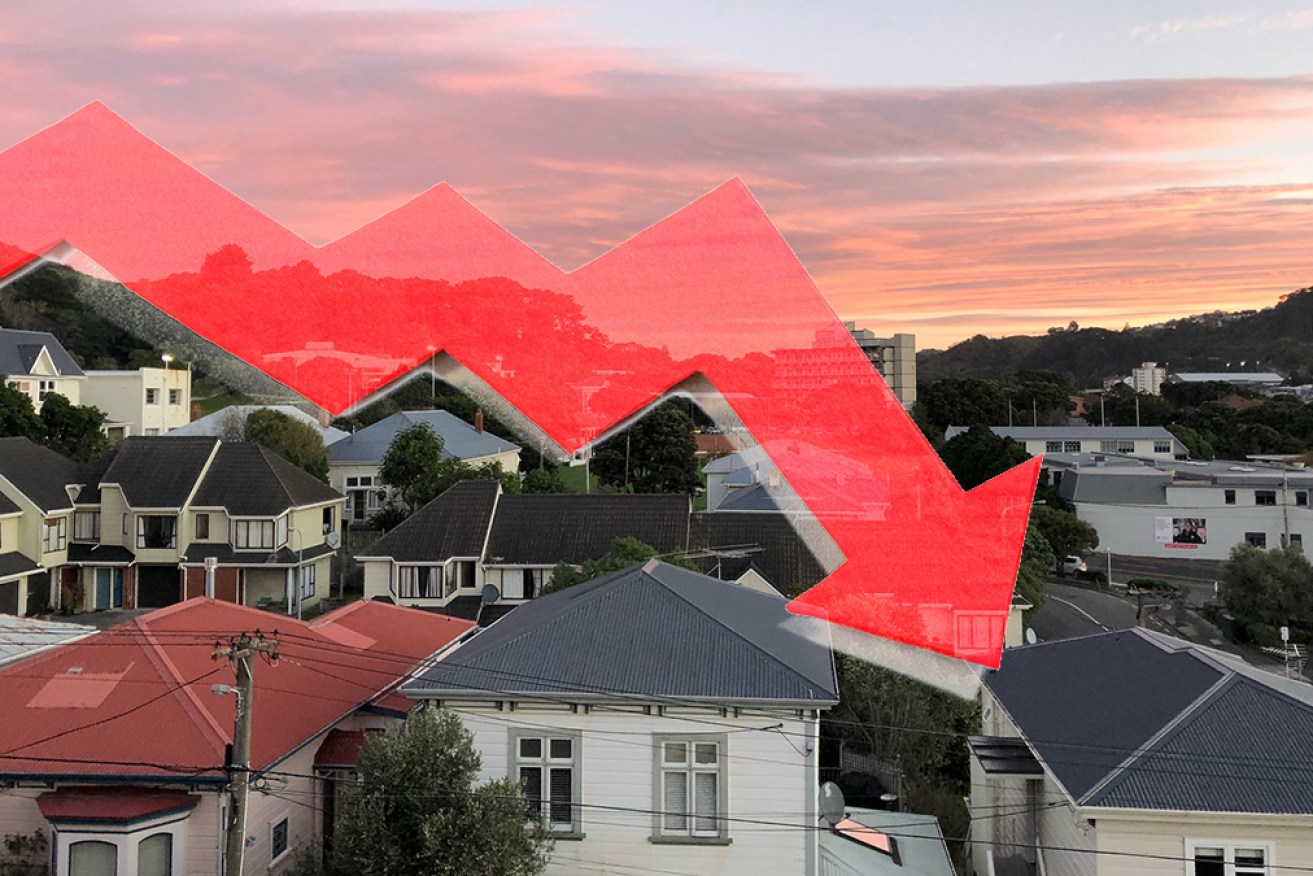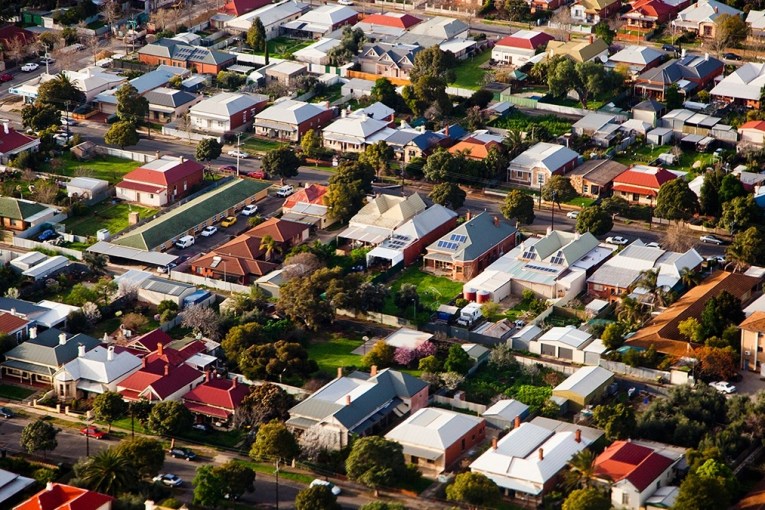Australian housing prices fall as coronavirus infects property market


The property market is showing early signs of infection. Photo: Getty
Property prices have fallen on a week-to-week basis for the first time since August, fuelling concerns the housing market is careening towards a catastrophic slowdown.
CoreLogic analysis reveals growth in average house prices has been falling for the past three weeks and has now dipped into negative territory for the first time since the 2018-19 downturn.
As the chart below shows, the three-week downturn coincides with the federal government’s shutdown of non-essential services and ban on physical auctions and inspections.
And new residential listings have fallen 40 per cent since mid-March.
The bleak results follow forecasts by SQM Research suggesting the economic “tsunami” triggered by coronavirus could wipe up to 30 per cent off the national property market.
CoreLogic head of residential research Eliza Owen told The New Daily the slowdown is not a direct symptom of restrictive lockdown measures.
Rather, it is a product of rising unemployment and collapsing consumer confidence.
“We see [uncertainty] in the amount of real estate agent activity, valuation activity across all platforms, and general apprehension from buyers and sellers to participate,” Ms Owen said.
“If people are less certain about their job and income prospects, sellers will only take their property to market if necessary.”
Australian housing prices enter murky territory
The property market’s woes were compounded by a steep drop in clearance rates.
The weekly average across capitals now sits at 30.6 per cent – the lowest result in CoreLogic’s reporting history.
Although Sydney has a slightly higher clearance rate (32.1 per cent), the national average was dragged down by sluggish results in Melbourne (20 per cent) and Brisbane (23.5 per cent).
The fall in clearance rates is in part due to the shift towards private treaty sales, which accounted for 61 per cent of last week’s sales.
Ms Owen said the property market’s trough is impossible to predict – not least because economic forecasts have changed dramatically since the government and major banks announced their various stimulus measures.
“I don’t think property declines will be as drastic [as SQM’s prediction],” Ms Owen said.
Tweet from @craigturnbull_
“Historically, a negative economic shock doesn’t dictate a strong decline in value … the GFC brought on a property price decline of 7.5 per cent, peak to trough.
“One thing that’s clear is transaction activity is heading down – new listings volumes have fallen off, so it’s increasingly clear that vendors aren’t willing to sell.”
Is government and banking assistance property’s saving grace?
One of the surprising results from CoreLogic’s analysis is a major decline in ‘mortgagee in possession’ valuation events, which sit 62.2 per cent below 2019 figures – albeit before the full economic effect of the coronavirus has been felt.
An increase would suggest that more borrowers are falling into arrears on mortgage repayments.
Ms Owen said this could reflect the major banks’ decision to offer six-month repayment holidays to home owners with income affected by the coronavirus pandemic.
“At least in the short term, we won’t see a strong uplift in mortgaging possession events,” Ms Owen said.
Tweet from @RoyceRk2
Meanwhile, a record-low cash rate of 0.25 per cent could support a stronger rebound than previous economic slowdowns.
And with economists revising down unemployment predictions following March’s JobKeeper announcement, that legislation could prove influential in property’s eventual recovery.
“The key will be how quickly employers can reinstate workers and how quickly confidence can recover, so these measures will dictate how the property market will fare,” Ms Owen said.










